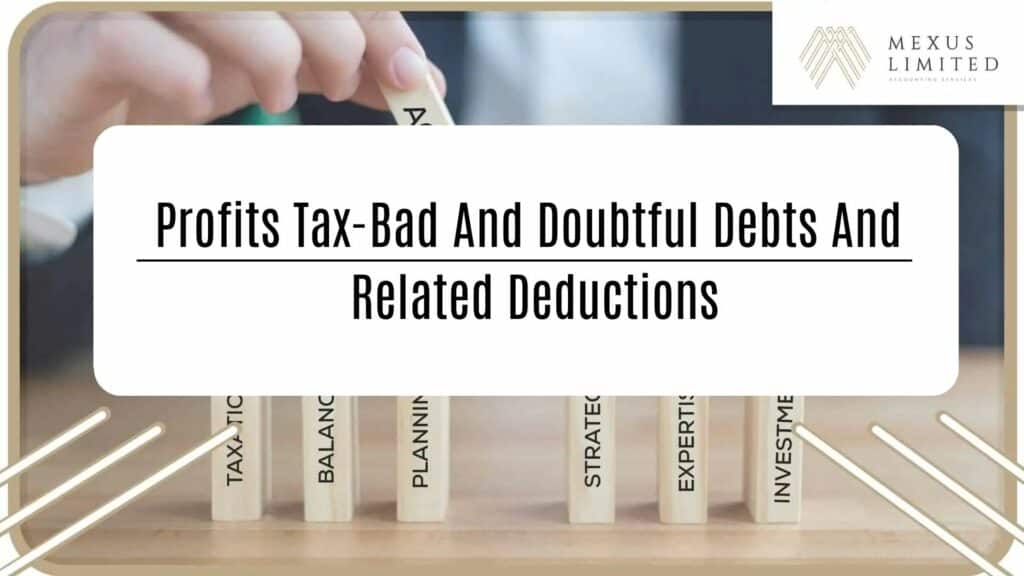Profits Tax-Bad and doubtful debts and related Deductions

In order for taxpayers to operate their businesses, the Inland Revenue Department will deduct the expenses and expenses incurred for generating taxable profits. One of the expenditures or expenses is bad and doubtful debts. However, the bad and doubtful debts must be included in the assessable business income before they can be deducted. Usually bad and doubtful debts have the following characteristics:
• The account receivable cannot be collected after the expiration date
• Lost or lost contact with the debtor
• The debtors have repeatedly failed to keep their promises to repay the debts on time
• The owed company is liquidated or the payer has gone bankrupt
• The debtor has a record of being sued by a third party for debts
• Those in arrears borrow high-interest loans from finance companies
If taxpayers find that certain payment accounts have the above characteristics, they should take actions to recover the debts as soon as possible before determining that the payables are bad and doubtful debts, including through telephone calls, emails, phone messages, letters from lawyers, etc…and Keep records of all recovery actions so that they can be viewed by the Inland Revenue Department, and the Inland Revenue Department is satisfied that there is a basis for the account payable to be converted into bad and doubtful debts.
In addition, taxpayers will make provision for bad debts in their financial reports in response to potential business or market risks. Since this provision for bad debts is not real bad debts, it is not tax deductible.
The above information is for reference only. If in doubt, we welcome your tax inquiries


